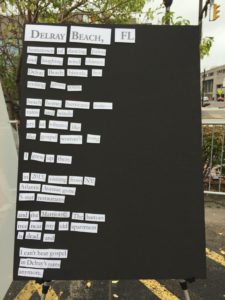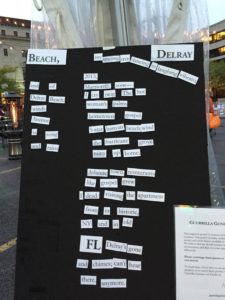Last week, I had the awesome opportunity to attend the Forum for Undergraduate Student Editors (FUSE) Conference with a few of my fellow classmates. Lizzie, Meg, Sara, and I stayed in a super cozy B&B just outside of Philly. I could go on about this fancy Air B&B and its fancy water-saving toilet, but I would digress.
Something I began thinking about legitimately during this conference was a career in writing. Although it would be natural to think about this during a writing conference, this question came about during a particular reading during the first night of the conference. The illustrious Martín Espada, a Brooklyn-born Nuyorican poet and activist, was the keynote reader and workshop-runner. His poetry– and especially his dramatic, funny, and lively reading style– made me laugh and cry. From cockroaches to hurricanes, I felt connected to this poet of my mother’s New York City generation, which is a reason I felt I could relate to his style.
In addition to poems sobre las cucarachas, there were many political poems– in particular, what Espada called his “lawyer” poems– since he was also a tenant lawyer and legal advocate for the Latino community. When I realized that Espada was both a poet and a lawyer for the type of advocacy I aspire to, something clicked.
Folks like Espada don’t live in a poetry bubble. They work out in the world, with their hands and their hearts. I realized that I, too, can think of my future career aspirations– which includes work in immigrant and refugee advocacy– and still write poetry. Poetry can always be a part of my life, as can the other work. Of course this would require some sacrificing, and some balancing. But all hard work does.
When I got my poetry book, Alabanza, signed by Espada, I told him about how I aspire to do work like he does, potentially in law. He addressed my book:
Dear Isabel, future poet-lawyer…
He read it aloud as he wrote it. I said “Now, because it’s in a book, it has to come true.” He agreed.


